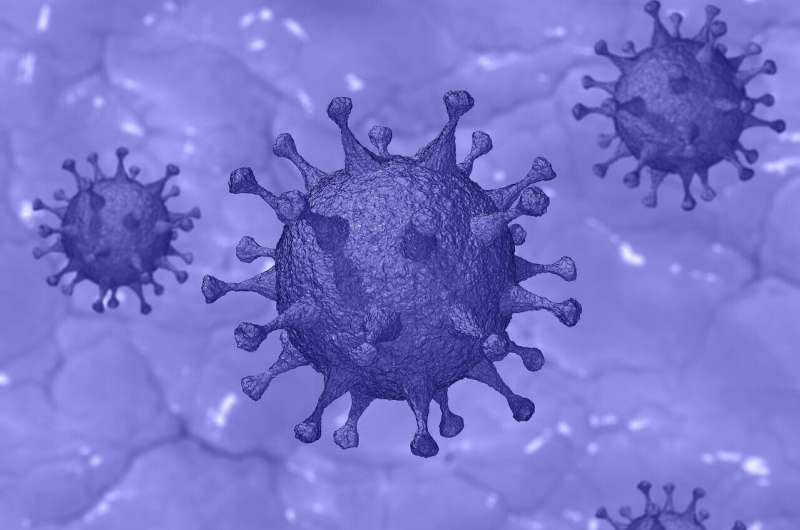Evaluation of rapid tests for COVID-19 show high levels of diagnostic sensitivity

A team of scientists, including researchers from the University of Sheffield, have today (25 September 2020) published their evaluation of a rapid, new COVID-19 testing technology, which has the potential to expand the type and scale of testing available.
LamPORE, a novel diagnostic platform for detecting SARS-CoV-2RNA, combines loop-mediated isothermal amplification with nanopore sequencing, meaning it has the potential to analyze thousands of samples per day on a single instrument.
Although preliminary, the results suggest high levels of diagnostic sensitivity in LamPORE which could mean an expansion to the scale of testing that could be offered in the future to help control the SARS-CoV-2 pandemic.
The collaboration between the University of Sheffield and colleagues at Public Health England Porton Down (PHE), Sheffield Teaching Hospitals NHS Foundation Trust and the University of Oxford, including support from the NIHR Oxford Biomedical Research Center, evaluated the performance of LamPORE against RT-PCR—the most commonly-used laboratory test for COVID-19.
The team used RNA (Ribonucleic acid which is a polymeric molecule essential in various biological roles in coding, decoding, regulation and expression of genes) extracted from two types of samples. Initially, mock samples formed of saliva from people without infection that had a known quantity of virus added to it, and subsequently nose and throat swabs from real COVID-19 patients collected during routine care at two UK hospitals—Oxford University Hospitals NHS Foundation Trust and Sheffield Teaching Hospitals NHS Foundation Trust.
The positive clinical specimens came mostly from patients with symptomatic infection, and among these LamPORE had a diagnostic sensitivity of 99.1 percent (i.e. it was positive in 226 of 228 samples positive by RT-PCR).
Among negative clinical specimens, including 153 with other respiratory pathogens detected, LamPORE had a diagnostic specificity of 99.6 percent (i.e. it was negative in 278 of 279
samples negative by RT-PCR). Overall, 1.4 percent of samples produced an indeterminate result on first testing, and repeat LamPORE testing on the same RNA extract had a reproducibility of 96.8 percent.
These results indicate that LamPORE has a similar performance to RT-PCR for the diagnosis of SARS-CoV-2 infection in symptomatic patients.
Dr. Thushan de Silva, from the University of Sheffield's Department of Infection, Immunity and Cardiovascular Disease, said: "These are preliminary but promising data that suggest LamPORE has the potential to expand the type and scale of SARS-CoV-2 testing that could be offered in the future. We are delighted to have partnered with collaborators in Oxford and Public Health England to help evaluate this novel diagnostic platform for SARS-CoV-2."
Dr. Cariad Evans, Consultant Virologist at Sheffield Teaching Hospitals NHS Foundation Trust and joint senior author of the published evaluation, said: "We are pleased to have contributed to this important evaluation. These are encouraging early findings and we are proud to have supported Public Health England and our academic partners in this essential COVID-19 research."
Professor Helen McShane, Director of the NIHR Oxford BRC, said: "This is an excellent example of how NIHR funding to support academic–industrial collaborations can lead to the development of new tools to help us control the SARS-CoV-2 pandemic."
Dr. Steve Pullan, from Public Health England, Porton Down, said: "Our early data indicates LamPORE to be a credible alternative to conventional PCR -based diagnostics, which has the potential to provide further high-throughput testing capacity."




















